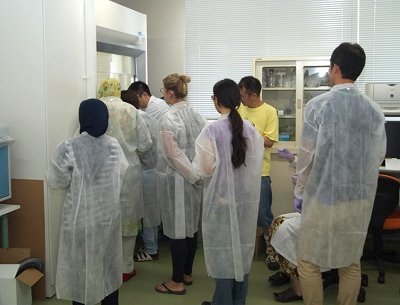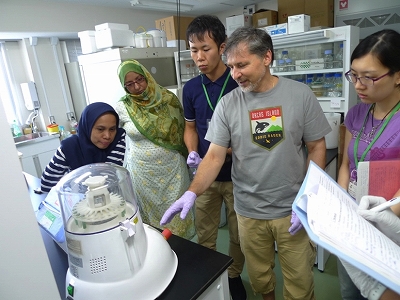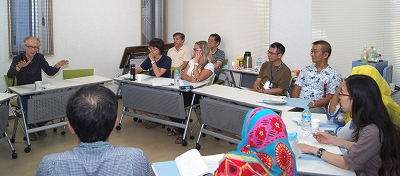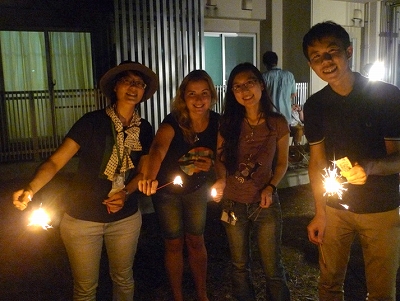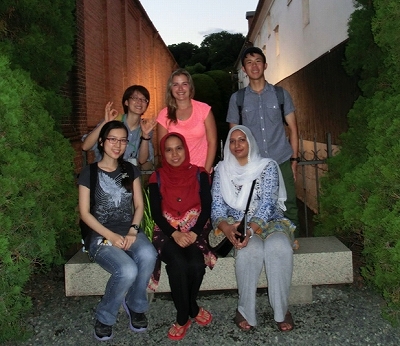
News
2016 IPSR International Training Course completed successfully !
The Okayama University Institute of Plant Sciences and Resources organizes its International Training Course annually since 2014 as part of various institute efforts to become an international hub in plant stress research. This year, the 3rd IPSR International Training Course: Methods in Plant Stress Research, was held from 22 to 26 August. During nearly one week, three young overseas participants from Czech Republic, Indonesia, and Pakistan, and three students from Japanese universities (Kobe, Nara, and Okayama) engaged in learning several analytical methods using advanced mass spectrometry equipment at IPSR. These practical techniques and data analysis methods were included:
1) Analysis of plant mineral elements using ICP-MS
2) Primary metabolite analysis in plants by GC-MS
3) Rapid identification and classification of plant symbiotic microorganisms using MALDI-TOF-MS.
In training course, lectures introducing theoretical background of each analytical method were presented first, followed by sample preparation and measurements, assuring complete understanding of each step of the analytical process. All experiments were carried out in the new Plant Science Research building, completed just two years ago, and in the renovated Research buildings 1 and 2, finished this year, providing very comfortable environment for learning and experiments.
Traditionally, we held a special seminar, this year presented by Professor David E. Salt from the University of Nottingham (UK), as integral part of the course. Under the title “The root endodermis acts as a gateway for vascular transport”, Professor Salt presented his current results and opinions on the formation and role of Casparian strip, structure that plays important role in control of mineral transport in plant roots. Among others, he highlighted the benefits of integrating various research methods, such as genetics and ionomics (simultaneous measurement and considering function of multiple minerals in plants) that led to a large number of novel findings in his laboratory. In the round table seminar with course participants, Professor Salt highlighted the concepts of studying plant functions by reverse and forward genetics methods, and importance of plant phenotype analyses, especially those based on the natural variation occurring in the locally adapted plant populations. To answer the final participant’s question “How to become an excellent researcher”, Professor Salt noted that, scientists should not stick to certain experimental methods they already know but they should use any available method to understand the function (phenotype) of plant. “Ask the plant what is important…”, he said.
To learn about each other, course participants worked closely together for the whole week, introduced their own research themes in a seminar, and directly exchanged opinions in their everyday discussions. Social activities including Kurashiki evening’s stroll, visit of the Ohara Museum of Art, and barbecue party on Wednesday evening further deepened friendship between the participants.
Overall, the 2016 International Training Course was successfully completed thanks to efforts of many people involved: contributors to scientific program, organizers of social activities, and course management. We would like to express sincere thanks to all of them.

Finally, in the next year, we hope for the continuous and active role of the institute in various international activities!
Course participants in action during IPSR training course